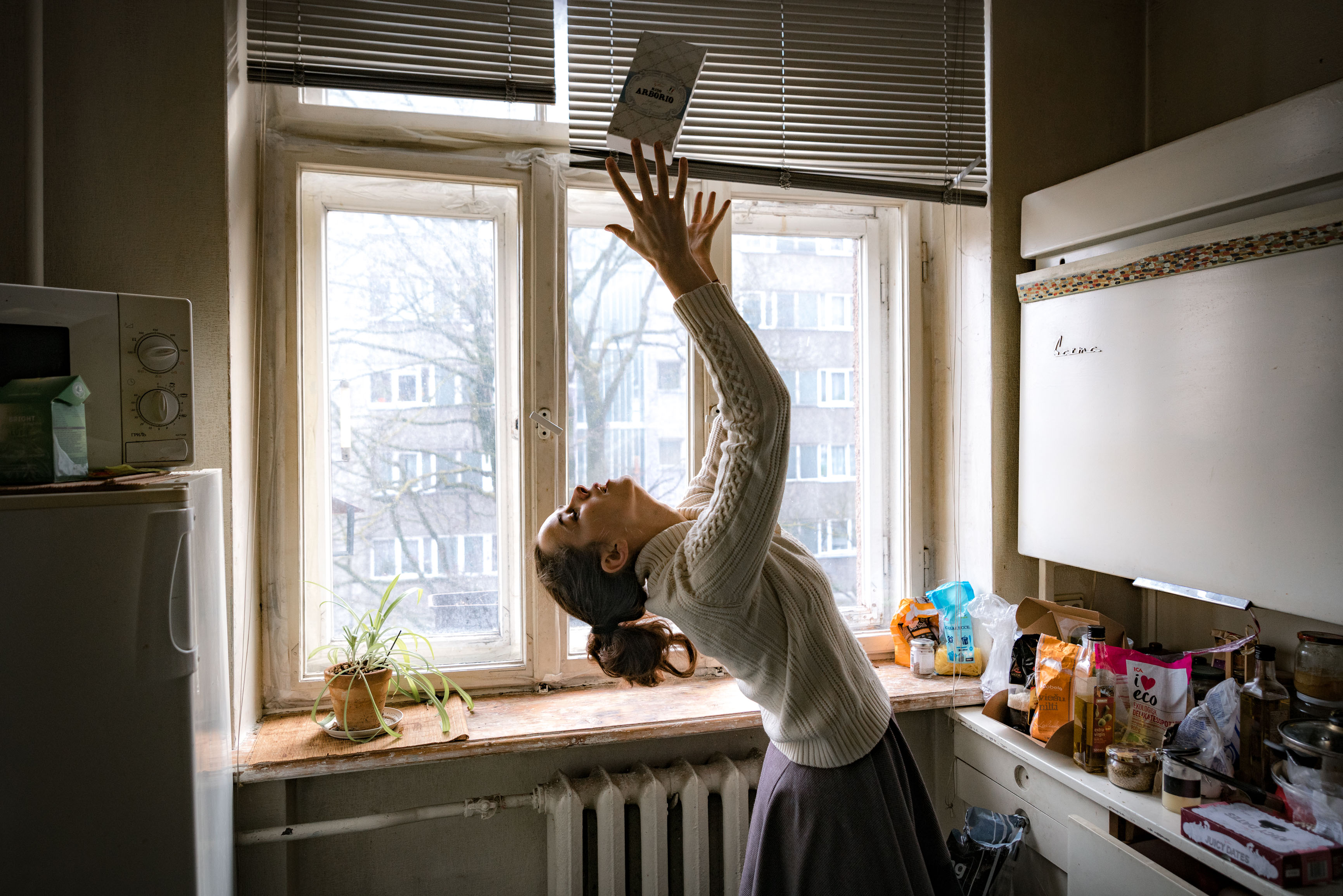DancePoint on April 22

What does dance and movement mean for people of different ages and in different life situations? The performance-walk DancePoint explores the dance in the most private of private spaces and invites audience to visit homes of different inhabitants of Pārdaugava neighbourhood and join them for a dance where no dancing skills are required!
Latvian and Icelandic choreographers will work together with home owners and create unique dance situations in each apartment, reflecting on personal stories and experiences of people and using everyday gestures and social codes. Entering the home, the spectators will become part of a micro happening and will be asked to follow simple instructions. By calling to pay attention, awaken senses and empathy for strangers, this is an invitation to a delicate non-verbal meeting.
The idea for DancePoint comes from the performance Church of Dancy of the Icelandic choreographer Ásrún Magnúsdóttir. In summer 2015 she created an event in Reykjavik where she invited people to her home and her neighbours homes encouraging strangers to come together with a simple reason to dance and celebrate.
Saturday 22 April
Walk and series of micro dance happenings in the homes of Pārdaugava inhabitants
14:00, 15:00, 16:00
Choreographers Kristīne Brīniņa, Agate Bankava, Ásrún Magnúsdóttir & Alexander Roberts (Reykjavik) together with Pārdaugava inhabitants
Free entrance with a prior registration.
NB! At the moment the registration is closed and all available places are filled.
After the registration, you will receive the information about the meeting place on April 22. Arriving there, you will receive a map of neighbourhood with directions and in small groups of spectators start on the walk crossing borders between Pārdaugva neighbourhoods, private and public space.
The total duration of the piece: 1h30min
DancePoint is a project initiated and organised by the New Theatre Institute of Latvia as part of [DNA] activities in Latvia and co-funded by the “Creative Europe” programme of the European Union, State Culture Capital Foundation, Riga City Council and Nordic-Baltic Mobility Programme for Culture.
Photo: Jānis Pipars
Back
